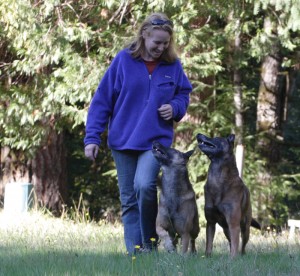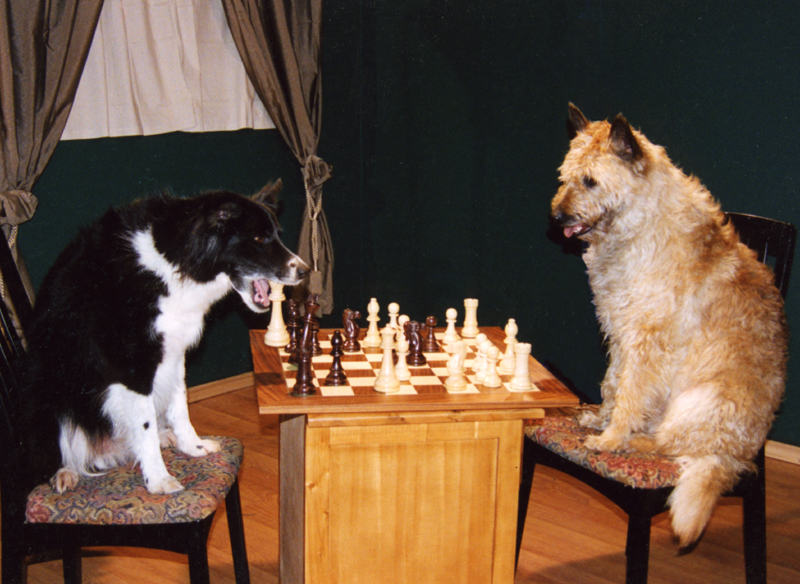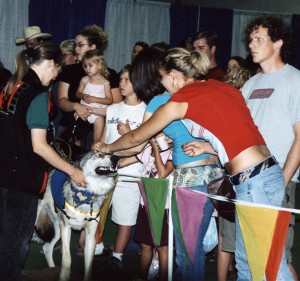A registry to track persons convicted of animal abuse would cause great harm to innocent people and animals while doing virtually nothing to protect animals. This will likely seem counter-intuitive to many animal lovers, and I hope you will be willing to set aside your assumptions and openly consider the issues.
Consider a few grave chapters from our past: the Inquisition, Hester Prynne, the Salem Witch Trials, anti-Semitism, McCarthyism, Matthew Shepard, bullying.
Well-intentioned men and women possess a powerful urge to find, to label, and to stop people who do bad things, a primary reason we have laws and means to enforce them. The historical record, however, unarguably reveals that whenever a community goes beyond law enforcement to create tribunals, registries, or civilian trials, little or no good follows. Instead, innocent people are often profoundly injured, lives shattered. Perhaps if most people were calmly rational, well-educated, and fully informed, abuser registries might accomplish their intended purpose – to reduce harm to animals. But in reality, far too many of us are swift to judge and eager to condemn before we know facts and context or have considered consequences.
We live in perilous times for our cherished animals. Most readers of this blog likely appreciate by now that animals and their people are under fierce and relentless assault by a veritable lynch mob. And because each zealot believes unshakably that he and his fellow crusaders are morally justified in howling for “rights” because they “love” animals, together they are fearsomely dangerous. Facts and truth are rendered meaningless in the face of such moral certitude. And one certain way to set that mob ablaze is the merest hint or suggestion that someone neglects or abuses animals. Along with the alleged guilty, the howling mob with equally ferocious mindlessness giddily torches the innocent.
And therein lies the problem: abuser registries give virtually unbridled power to a group that already wields and regularly abuses all the power; and they can destroy any innocent person any time they choose.
We are not talking about abusers at the moment; we are talking about any one of us with beloved creatures in our care.
Tomorrow at 5:30 a.m.; a knock on your door; men in uniform demand to see your animals: there was an anonymous call claiming that you are abusing animals. The uniforms look around; they tell you they are seizing your pets. You have a choice:
- You can fight the charges. You will be arrested and charged with felony abuse/neglect. The authorities are going through your house taking pictures for evidence, and of course they can stage whatever they want. They will take possession of your animals—the ‘evidence’ – until your court date. They can starve them, injure them, terrify them, and do whatever they choose in the interim to make your animals appear abused. They will call their colleagues in the media and spread the story of how you abuse animals everywhere in 24 hours. They will make sure their thousands of members and supporters all get on the Net to condemn you and inflame the animal-loving public. They will call up their friends at the District Attorney’s office, the court, and everyone else involved in the process to make sure that everyone knows that you are an animal abuser. After a year or two of fighting and having your name dragged through the mud, if by some miracle you win, and prove that there was never any reason for them to even inspect your dogs, much less seize them, you will nonetheless owe the authorities the costs of every day they held your animals – an amount they incontestably determine.
- Sign over your dogs to them “willingly” and they we will leave right now and your life will continue.
This scenario sounds like the ranting of a paranoid conspiracy loon in a tinfoil hat! But we have all seen it happen now, over and over. Why? A neighbor complains; a do-gooder genuinely believes animals are being abused; an Animal Rights zealot believes anyone owning more than one animal is an abuser by definition; a local shelter wants to take the animals and sell them for a profit; a bill is pending and advocates want a good case for the media; animal control wants to discredit an adversary, they want to shut down a breeder – or they simply believe that no one should own a pet. Sometimes such actions are a conscious abuse of power, other times misunderstanding or societal inertia. There are many reasons, but the unavoidable truth is that, as insane as it sounds, this is happening today, and with alarming frequency, and once the bell is rung there is little stopping the destruction that follows. Because animal control and animal rights groups essentially hold all of the power and all the public bona fides, it is difficult to “prove” that this is happening: how can we prove that someone was not abusing or neglecting their animals, especially since a huge majority of people faced with this sort of unwinnable scenario go with option two, and do sign over their dogs “willingly”?
You might imagine that due process of law will ensure that the only people affected by registries are the truly guilty. There are two problems with this: first, the way abuse laws are written in most states, virtually every dog owner is technically guilty every day, and there is little consensus—a dog in a crate, a dog not in a crate, a dog fed too little, a dog fed too much, a dog vaccinated too much, a dog vaccinated too little—however you care for your pets, I promise you there is someone out there who considers it abuse and can make a strong legal case. Second, the primary danger of a registry is how it is used as a threat long before guilt or innocence is established. Registries are the ultimate tool to intimidate, terrorize, and threaten anyone who does not acquiesce. “Don’t do what we want, and not only will you be ruined personally and financially, but your name will be on a list, a list forever, a list that will keep you from getting work, that will make you a pariah in neighborhoods, that will make you persona non grata just about everywhere.” First we threw away any expectation of privacy for animal owners, then any presumption of innocence; then we gave the accusers the right to retain the evidence (our animals) until trial, and to charge us for doing so. And now they can put your name on a list and ruin your life.
Ask yourself: would an abuser registry have helped Logan, the dog who had acid thrown in his face by a stranger, and whose name is now synonymous with registries? It would have done nothing.
There are few if any cases of animal abuse that would be prevented by an abuser registry: anyone who wants to acquire an animal to abuse will be able to do so. Sadly, in this world there are evil people who rape and murder, who beat and molest children, who abuse animals. And we all want to stop such people. But would a registry make any significant difference? Would it make felony animal abuse any more criminal? Would there be any practical way for us to finance, implement, and enforce such a tool? (The evidence confirms that public sex offender registries in almost every case make things worse, not better.)
The reality is that such a tool is virtually useless in protecting animals, but hugely effective in allowing an already unconscionably powerful group of bullies to terrify and coerce innocent citizens whenever they choose.











